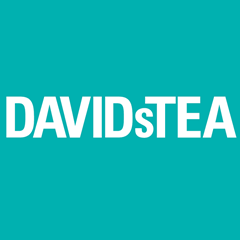Hear the Headlines
| Cold Brew is Trending for Iced Tea Month
| DAVIDsTEA in Canada Settles its Debts
| Kenya Exports Surge but Auction Prices Remain Low
| PLUS Smith Teamaker’s Ravi Kroesen explains the company’s new plant-based café concept and Amy Dubin-Nath talks about the future of whole leaf Indian teas.
As India’s second flush gets underway, the mood is glum as the industry continues to deal with many challenges. Local media reports on rising imports of tea into India and in Darjeeling, producers have expressed concern about zero-duty imports from Nepal. Read more…
Features
Tea Biz this week travels to Columbus, Ohio to visit with Amy Dubin-Nath, founder of Janam Tea and an ad hoc India tea ambassador to the US.…
…and then to Portland, Ore. where Ravi Kroesen, head teamaker at Smith Teamaker, explains the many uses of tea at the company’s recently opened plant-based café.

India’s Spectacular Specialty Teas
Amy Dubin-Nath sees a bright future for specialty teas originating in India, “but I don’t think it is going to be a quick flip where people are only after high end teas.” Instead, the process will be gradual, following a path similar to wine. “Do I want to see the spectacular teas of India keep selling at a high price?” she asks, “Yes, definitely, as that elevates the perceived value, making it something precious. I believe that message should be spread throughout the world — including in India.” Read more…

A Plant-Based Café where Tea Reigns Supreme
By Jessica Natale Wollard
The intent of the new café concept, says Smith Teamaker Ravi Kroesen, is to “develop foods that really reflect our ethos of plants, as well as utilizing tea as an ingredient.” The new Smith Teamaker café sources locally with a menu that includes snacks, lattes and iced concoctions with full meals that demonstrate how tea and food can live in harmony from leaf to cup to plate. Read more…

Iced Tea Month: Cold Brewed Teas are Trending
By Dan Bolton
The challenge of correctly steeping a delicate green to avoid bitterness disappears when the tea is brewed overnight in the fridge. “I’m cutting calories and want something more flavorful than water,” begins one Reddit thread. “Can you explain to a total cold brew newbie how to get the most flavorful green tea without additives.” The responses were enthusiastic and numerous, evidence that the technique rivals more traditional fresh-brewed, flash-chilled black tea.
Whether boiling tea to pour over ice, or making cold brew, the tea to water ratio is critical. Begin with about twice the normal weight of tea, 6-8 tablespoons for 1.5 quarts (or 8-12 grams per 950 milliliters). Stale tea requires more leaves, quality whole leaf requires fewer. Make sure your vessel is airtight as tea will pick up the scent of leftovers.
Allied Market Research estimates RTD tea generated $30 billion in 2019 and will grow 5.5% annually to $39 billion in 2027. Health-conscious millennials are driving sales. Mintel reports that 25% of new tea innovations are RTD. In China where 78% of consumers are frequent drinkers of freshly brewed hot tea, RTD enjoys 49% penetration, which is greater than tea bags, according to Mintel.
Biz Insight – Cold brew coffee experienced remarkable five-year growth in both bottled ready-to-drink and foodservice. North America is the largest cold brew market globally with 66% market share, followed by Europe (17%) and Asia (11%). In the US – 2015 toles of cold brew coffee are expected to increase ten-fold from $110 million to $945 million in 2025, according to Statista market research. Three-sixty market research estimates the market globally will reach $2.8 billion by 2026.
DAVIDsTEA Settles Debts
A Quebec Superior Court approved the Montreal-based tea company’s plan to settle $118.2 million in claims for $18 million payable in July. A US Bankruptcy Court this week approved a similar plan for resolving debts owed by DAVIDsTEA’s US subsidiary.

The settlements are a final step toward exiting a year-long reorganization precipitated by the closure of all but 18 of the company’s more than 200 locations. The settlement will be divided with $15.3 million going to Canadian creditors and $3.1 million to US creditors, according to PwC, Canada. The company has sufficient cash on hand to meet settlement obligations.
Under the direction of CEO Sarah Segal, DAVIDsTEA has adopted a “digital first” market strategy for sales to consumers. Its wholesale products are now found in 2500 grocery and pharmacy outlets. The company reported sales of $40.2 million in fourth quarter 2020. Revenue from the fast-growing online and wholesale segment has increased from $42 million in 2019 to $97.2 million in 2020. Greatly reduced brick and mortar revenue now accounts for only 12.9% of total sales. Revenue overall declined 38% in 2020 leading to $55.9 million in losses.

Kenya Tea Exports Surge
Despite upheaval at the factory level, Kenya exported much higher tea volumes this year. First quarter exports increased 18.9% compared to 2020, according to the national Tea Directorate. Volume topped 153 million kilos, up from 128 million during the same period in 2020.
Smallholders that produce 65% of the country’s tea experienced variable weather conditions in 2021 creating an overall decline in production during the first three months of 2021. Growers, primarily in the far west, harvested 18 million fewer kilos since January compared to the same quarter in 2020. Auction prices are on the rise, reaching $1.84 per kilo last week but remain below the $2 per kilo threshold considered essential to cover production costs. Weekly prices so far averaged $2 only once in 2021. Tea prices averaged $1.80 per kilo in 2020, down from $2.05 per kilo in 2019.
Biz Insight* – Kenya’s tea growers are benefiting from payment of 50% of the total due thanks to national reforms instituted this spring. Half the price for green leaves delivered within the month to Kenya Tea Development Agency (KTDA) factories, is paid by the 20th of the following month. The balance is paid in the fall at the end of the financial year. KTDA’s factories are owned by smallholders and managed by KTDA.
*Corrected 6.20.2021
Link to share this episode with your friends in tea.
https://teabiz.sounder.fm/episode/news-01212021
Subtext
Avoid the chaos of social media and start a conversation that matters. Subtext’s message-based platform lets you privately ask meaningful questions of the tea experts, academics and Tea Biz journalists reporting from the tea lands. You see their responses via SMS texts which are sent direct to your phone. Visit our website and subscribe to Subtext to instantly connect with the most connected people in tea.
Subscribe and receive Tea Biz weekly in your inbox.



